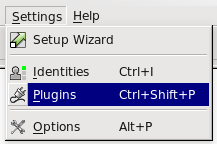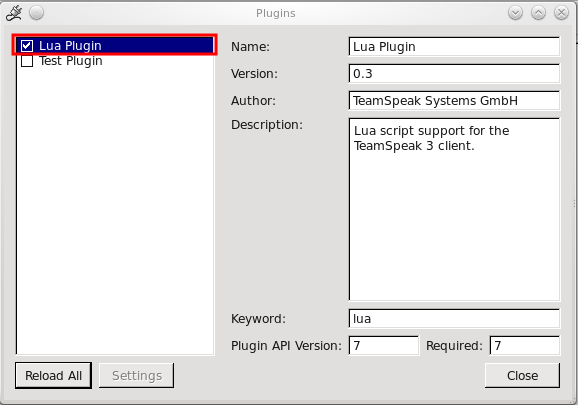 Étant un peu joueur dernièrement, j’ai du me battre pour pouvoir communiquer normalement avec mes congénères joueurs. Hé oui, TeamSpeak 2 était la norme.
Étant un peu joueur dernièrement, j’ai du me battre pour pouvoir communiquer normalement avec mes congénères joueurs. Hé oui, TeamSpeak 2 était la norme.
Avec TeamSpeak 2 pour avoir du son dans le jeu ET le son de mes gentils camarades de jeux je devait utiliser TeamSpeak 2 via Wine. En effet TS2 linux n’utilise pas ALSA.
Depuis un passage récent à TeamSpeak 3 tout à changer, à moi le TeamSpeak en natif sans problèmes !
Heureusement on en a jamais assez. Et il me manquais une fonctionnalité. Savoir qui parle quand je ne suis pas devant l’interface de TS3.
Les malheureux utilisateurs de Windows peuvent utiliser un outils TeamSpeak Overlay. Le système de plugin de TS3 permet désormais aux utilisateurs de Linux d’étendre les interactions avec leur système.
Donc comment on fait pour voir qui parle ?
J’ai trouvé la solution dans un forum mais celui-ci est perdu au milieu de discussions en anglais ce qui a rendu ma recherche assez longue. Je vais donc retranscrire ici la solution.
Les dépendances :
- Avoir TeamSpeak 3
- Avoir les binaires xosd :
sudo apt-get install xosd-bin
Ensuite il faut créer le fichier script osd.lua et le sauvegarder dans « <répertoire teamspeak 3>/plugins/lua_plugin/ ».
Il faut ensuite éditer le fichier « <répertoire teamspeak 3>/plugins/lua_plugin/ts3events.lua » et rajouter à la fin
require("osd")
Lancez TeamSpeak 3 et allez dans le menu « Settings » > « Plugins »

et activez « Lua plugin » :
Pour personnaliser le placement il faut éditer le script osd.lua et jouer avec les valeurs des variables :
--The vertical position of the text. POS can be top, middle, or bottom. --The default is top. local osd_pos="bottom" --The number of pixels the text is offset from the top or bottom of the --display. The default is 0. local osd_offset=120 --The horizontal alignment of the text. ALIGN can be left, centre or --right.The default is centre. local osd_align="right" --The number of pixels the text is indented from the left or right of the --display. The default is 0. local osd_indent=0 --The font used to display the text. The default is fixed, which may be --too small to see clearly. local osd_font="-adobe-helvetica-bold-*-*-*-14-*-*-*-*-*-*-*" --The text colour. The default is red. local osd_colour="green" --The number of seconds the text is displayed before being removed --from the display. The default is 5. local osd_delay=100 --The maximum number of lines that can be displayed. The default is 5. local osd_lines=5 --The number of pixels the shadow is offset behind the text. The --default is 0, so no shadow is displayed. local osd_shadow=1 --The colour of the shadow. The default is black. local osd_shadowcolour="black" --The width of the outline, in pixels. The default is 0, so no outline --is displayed. local osd_outline=1 --The colour of the outline. The default is black. local osd_outlinecolour="black" --This option affects screen redrawing. If SCROLL_AGE seconds pass --before a new line is ready (for example, you're reading from a pipe), --the display is cleared instead of being scrolled. The default is 0, --which means all lines are added to the scroll. osd_age=100
À vous de jouer !


Commentaires récents